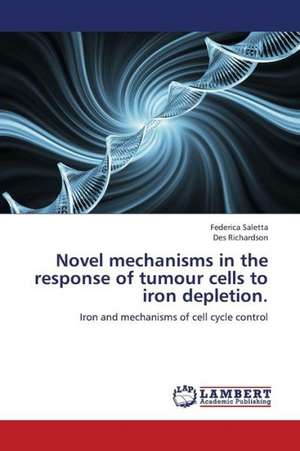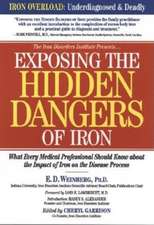Novel mechanisms in the response of tumour cells to iron depletion
Autor Saletta Federica, DES RICHARDSONen Limba Engleză Paperback – 14 mai 2013
Preț: 474.90 lei
Preț vechi: 499.89 lei
-5% Nou
Puncte Express: 712
Preț estimativ în valută:
90.88€ • 93.89$ • 75.60£
90.88€ • 93.89$ • 75.60£
Carte tipărită la comandă
Livrare economică 20 martie-03 aprilie
Preluare comenzi: 021 569.72.76
Specificații
ISBN-13: 9783847307495
ISBN-10: 3847307495
Pagini: 272
Dimensiuni: 152 x 229 x 16 mm
Greutate: 0.4 kg
Editura: LAP Lambert Academic Publishing AG & Co. KG
Colecția LAP Lambert Academic Publishing
ISBN-10: 3847307495
Pagini: 272
Dimensiuni: 152 x 229 x 16 mm
Greutate: 0.4 kg
Editura: LAP Lambert Academic Publishing AG & Co. KG
Colecția LAP Lambert Academic Publishing
Notă biografică
Dr. F. Saletta completed her PhD in the Iron Metabolism and Chelation Program in 2012, University of Sydney. Her thesis led to 3 published papers.Dr. D. Richardson is Professor of Cancer Cell Biology, University of Sydney, and directs the Iron Metabolism and Chelation Program. He was Dr. Saletta's PhD supervisor.











